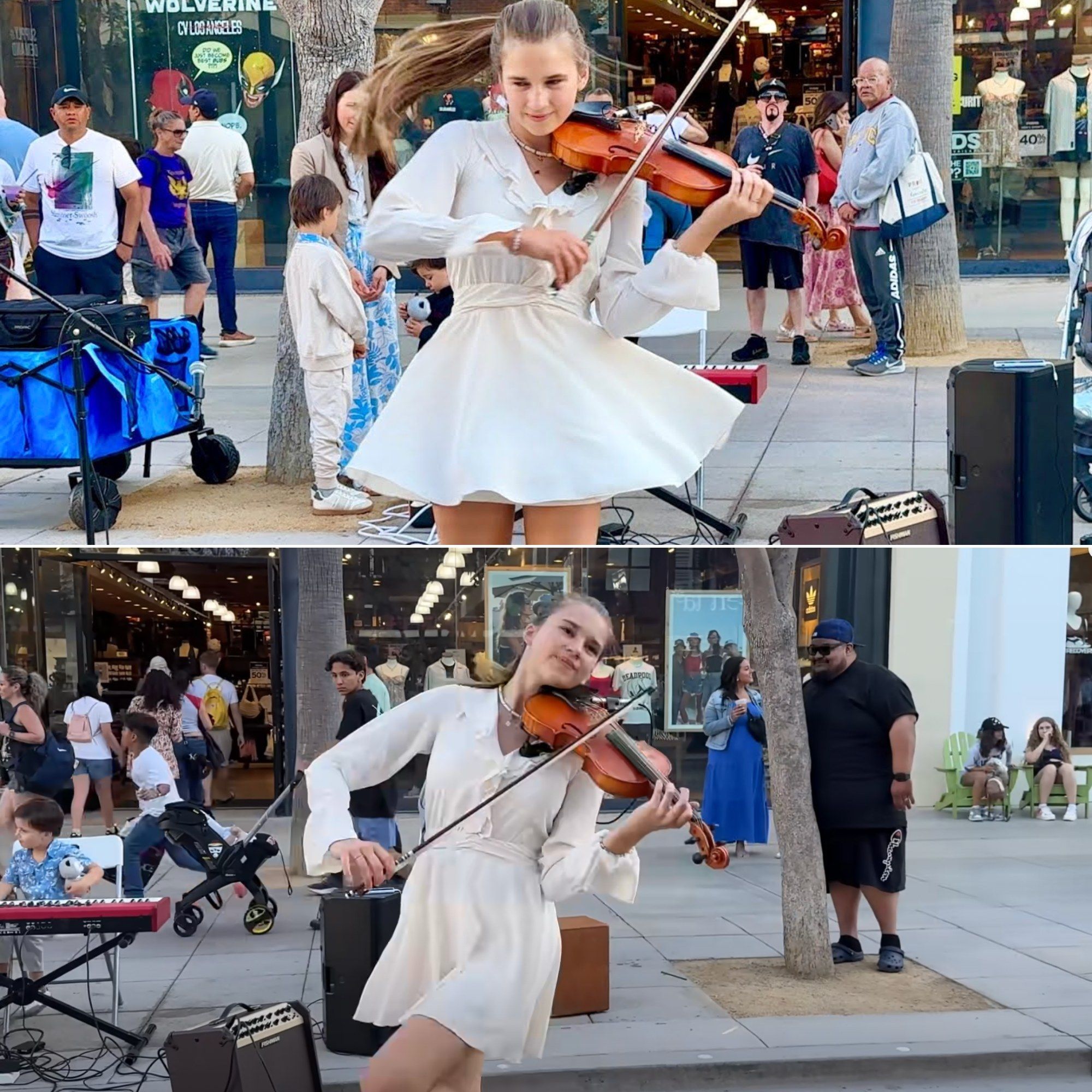Under the soft glow of the setting sun, a young violinist stood in the middle of a bustling city square, her bow poised with delicate precision. The air was filled with anticipation as Karolina Protsenko, the prodigious violinist known for her soulful performances, closed her eyes and let the first notes of Chicago’s iconic ballad, “Hard to Say I’m Sorry,” flow through her strings.
From the very first stroke, the crowd was mesmerized. The song, originally a powerfully heartfelt plea for forgiveness, took on an entirely new life in Karolina’s hands. Without a single word, her violin spoke volumes—every note dripping with emotion, every vibrato echoing the unspoken longing embedded in the song’s lyrics.
Passersby, who had moments ago been caught up in their daily rush, slowed to listen. Some stopped in their tracks, captivated by the sheer beauty of the melody. A couple standing nearby reached for each other’s hands, their eyes glistening with nostalgia. An elderly man, clearly familiar with the original song, closed his eyes and swayed gently, lost in the memories it evoked.
As Karolina’s bow danced across the strings, she built the melody into a powerful crescendo, her passion evident in every movement. It was more than just a cover—it was a reinterpretation, a rebirth of a classic, now dripping with the raw emotion only a violin could deliver. The song no longer needed words; the pain, love, and longing were all felt in the soaring highs and delicate whispers of her instrument.
When the final note rang out, there was a moment of stunned silence before the crowd erupted into thunderous applause. Some wiped away tears, others simply stood in awe, realizing they had just witnessed something truly special—a moment of pure musical magic.
Karolina smiled, humbly bowing in gratitude, knowing she had done justice to a song that had touched hearts for decades.
That night, the internet would soon explode with the viral video of her breathtaking performance, with thousands commenting how she had taken one of Chicago’s greatest hits and turned it into an instrumental masterpiece.
And in that moment, Karolina Protsenko didn’t just play the violin—she spoke the language of the heart.


